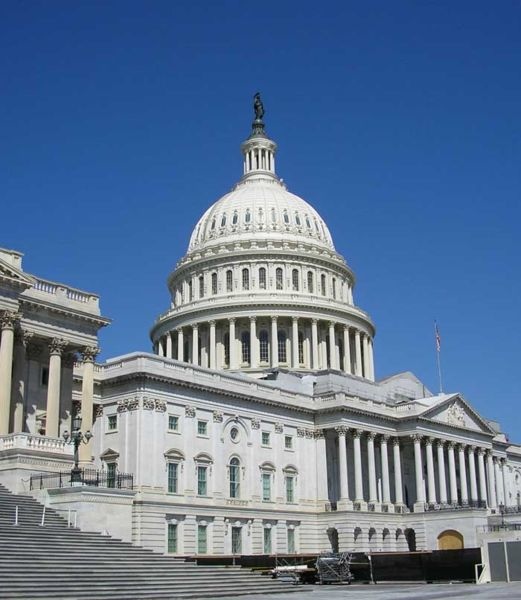What does Friday’s close Waxman-Markey vote in the House tell us? (The 219 yes votes represented exactly one more than the minimum necessary.)
In an excellent analysis (complete with interactive map), National Journal‘s Ron Brownstein notes:
Of the 49 House Democrats who represent districts that McCain carried last year, fully 29 voted against the measure. By contrast, just 15 of the 207 Democrats from districts that Obama carried last year voted against the bill. (Florida Rep. Alcee Hastings, whose district backed Obama, did not vote, meaning “Obama Democrats” ended up splitting 191-15.) Put another way, while 59 percent of the Democrats from districts that McCain carried voted no, just 7 percent of Democrats in Obama-majority districts opposed the White House on the vote.
Similarly, seven of the eight Republicans who supported the measure represent districts that backed Obama last November. (The list included Rep. Mark Kirk of Illinois, who’s considering a bid for the president’s former Senate seat, and Mike Castle of Delaware, who may run for the seat vacated by Vice President Joe Biden.)
The Hill covers Pelosi’s full-court press to get the votes, which crucially involved persuading a small bloc of Republican moderates. A representative was pulled out of rehab; another delayed her resignation; several changed their minds in the final hour. Fascinating individual stories, like this:
Henry Cuellar (D-Texas). Obama tried, and failed to convince Cuellar. On Thursday, Pelosi approached Cuellar on the House floor as he was telling a colleague about how he was going to reject the bill. The Speaker tapped him on the shoulder.
“Henry,” she interrupted. “Can I talk to you about your vote?”
Cuellar, who sits on the Agriculture Committee, later said he was still leaning no. He waited late in the roll call on Friday evening to register his position, voting yes.
To Bill Scher, the narrow vote is a bad sign — Dems were looking to defect and the thing barely scraped by, even with eight Republicans votes. According to Stan Collender, it’s a good sign — many Dems were saved a risky vote:
The margin was narrow but isn’t the big story. The ultimate political value for the White House is that it was able to get the bill adopted at all but still allow 44 Democrats to vote against it. Not asking Democrats to walk a political plank will pay huge dividends later this year and in the 2010 elections because those members who needed to vote against it were able to do so. And, of course, the White House didn’t have to use up huge favors in the process.
Having voted against the administration’s climate change bill on the record means that at least some of these House Democrats will be able to vote for what emerges from a House-Senate conference later in the year. Therefore, the chances of a climate bill being enacted this year is now much greater than it was 24 hours ago.
Ezra Klein is skeptical, as am I. It assumes that whatever comes out of conference is weakened and thus that no-voting Dems have plausible cover to switch to yes. That’s a bit of a bank-shot road to political success; hard to see how its preferable simply to whipping up more votes.
One thing everyone agrees on: the Senate is a much, much tougher row to hoe.




